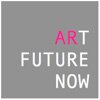About
 ABSTRACT: The text on video remixing contributed to Networked Book is the result of an ongoing collaboration that started in January 2010, when Owen Gallagher invited Mette Birk, Mark O’ Cúlár, Martin Leduc, and Eduardo Navas to join a ‘Remix Theory and Praxis’ online seminar. In April, Navas invited Tara Zepell to join the group.
ABSTRACT: The text on video remixing contributed to Networked Book is the result of an ongoing collaboration that started in January 2010, when Owen Gallagher invited Mette Birk, Mark O’ Cúlár, Martin Leduc, and Eduardo Navas to join a ‘Remix Theory and Praxis’ online seminar. In April, Navas invited Tara Zepell to join the group.
The text explores concepts of remixing not only in content and form, but also in process. The aim of the collaboration is to evaluate how the creative process functions as a type of remix itself in a period when production keeps moving toward a collective approach in all facets of culture. The emphasis on video remixing is the result of a collaborative rewriting activity among the contributors, who each wrote independent paragraphs that went through constant revisions once combined as a single text. Video was selected as the subject of analysis because members have a common interest in time-based media, and also because video remixing is at the forefront of media production. One of the group goals is that the text becomes a statement of what video could be as a reflective form of the networked culture that is developing at the beginning of the twenty-first century. The text is in constant revision and readers are encouraged to join in its writing.
» Read | Write This Chapter ›
BIOGRAPHIES:
 Mette Birk is an M.A. candidate for Film and Media Studies at the University of Copenhagen. She is currently carrying out field research that focuses on the sociological perspectives of creating remixes, with a particular focus on “trailer remixes” in the style of Robert Ryang’s famous “Shining” video.
Mette Birk is an M.A. candidate for Film and Media Studies at the University of Copenhagen. She is currently carrying out field research that focuses on the sociological perspectives of creating remixes, with a particular focus on “trailer remixes” in the style of Robert Ryang’s famous “Shining” video.
 Mark O’ Cúlár is an Irish filmmaker and artist. His interest in remix began as a DJ and he started producing projected scenes consisting of “found material” in a VJ scenario in 2002. His work as a video editor has been the driving force to experiment with storytelling with the mass media as source material. He has produced remixed video work under a selection of pseudonyms. Mark is building doubled sided websites (http://itison.net and http://itison.tv) into community led spaces focused on media activism and remix culture.
Mark O’ Cúlár is an Irish filmmaker and artist. His interest in remix began as a DJ and he started producing projected scenes consisting of “found material” in a VJ scenario in 2002. His work as a video editor has been the driving force to experiment with storytelling with the mass media as source material. He has produced remixed video work under a selection of pseudonyms. Mark is building doubled sided websites (http://itison.net and http://itison.tv) into community led spaces focused on media activism and remix culture.
 Owen Gallagher is a designer, educator, musician and entrepreneur originally from Dublin, now living in Co. Donegal, Ireland, where he is an Assistant Lecturer of Design and Creative Digital Media at Letterkenny Institute of Technology. He is a graduate of the University of Ulster, where he received a Masters Degree in Design Communication with distinction in 2007. He holds a Higher Diploma in Research Practice, a Bachelor of Design in Digital Media and a Diploma in Graphic Design from LYIT, as well as an Associate Diploma in Music Performance from the Victoria College of Music, London. Owen is also the founder and Creative Director of CHI Media, a graphic, web and digital media design agency based in the north west of Ireland.
Owen Gallagher is a designer, educator, musician and entrepreneur originally from Dublin, now living in Co. Donegal, Ireland, where he is an Assistant Lecturer of Design and Creative Digital Media at Letterkenny Institute of Technology. He is a graduate of the University of Ulster, where he received a Masters Degree in Design Communication with distinction in 2007. He holds a Higher Diploma in Research Practice, a Bachelor of Design in Digital Media and a Diploma in Graphic Design from LYIT, as well as an Associate Diploma in Music Performance from the Victoria College of Music, London. Owen is also the founder and Creative Director of CHI Media, a graphic, web and digital media design agency based in the north west of Ireland.
 Eli Horwatt is a Ph.D. candidate at York University, Toronto in the Cinema and Media Studies Department researching appropriation and conceptual art strategies in experimental film and video. He has published articles on remixing and machinima in Scope and CineAction Magazine. Horwatt writes a blog called Recycled Cinema.
Eli Horwatt is a Ph.D. candidate at York University, Toronto in the Cinema and Media Studies Department researching appropriation and conceptual art strategies in experimental film and video. He has published articles on remixing and machinima in Scope and CineAction Magazine. Horwatt writes a blog called Recycled Cinema.
 Martin Leduc is a writer, video remix artist and media activist living in Ottawa. He blogs for cinemaminima.com and totalrecut.com. In Fall 2010, Leduc will be starting his Communications MA at Carleton University. He has curated remix videos and screened his own remixes at multiple venues.
Martin Leduc is a writer, video remix artist and media activist living in Ottawa. He blogs for cinemaminima.com and totalrecut.com. In Fall 2010, Leduc will be starting his Communications MA at Carleton University. He has curated remix videos and screened his own remixes at multiple venues.
 Eduardo Navas researches the crossover of art, culture, and media. His production includes art & media projects, critical texts, and curatorial projects. He has presented and lectured about his work and research in various places throughout the Americas and Europe. He has taught art and media theory at various colleges and universities in the United States. Navas holds a Ph.D. in Art and Media History, Theory and Criticism from the University of California, San Diego. For more on Navas’s research, visit http://navasse.net and http://remixtheory.net.
Eduardo Navas researches the crossover of art, culture, and media. His production includes art & media projects, critical texts, and curatorial projects. He has presented and lectured about his work and research in various places throughout the Americas and Europe. He has taught art and media theory at various colleges and universities in the United States. Navas holds a Ph.D. in Art and Media History, Theory and Criticism from the University of California, San Diego. For more on Navas’s research, visit http://navasse.net and http://remixtheory.net.
 Tara Zepel is a researcher, theorist and intermittent artist and a PhD student in the Art History, Theory & Criticism program at UCSD where her work explores the intersection(s) between aesthetics, community and technology. Her current focus is on the networked aesthetics of ubiquitous computing and Augmented Reality. She is particularly interested in relations between art and technology that push conceptions of what is possible and the cultural/aesthetic implications that ensue. Prior to UCSD, Tara received a bachelor’s degree in Literature from Duke University (2002). She has also acted as a project manager in the art world and doing production and post-production work for independent films but has always retained close ties to her passion for learning and sharing knowledge. Visit her website.
Tara Zepel is a researcher, theorist and intermittent artist and a PhD student in the Art History, Theory & Criticism program at UCSD where her work explores the intersection(s) between aesthetics, community and technology. Her current focus is on the networked aesthetics of ubiquitous computing and Augmented Reality. She is particularly interested in relations between art and technology that push conceptions of what is possible and the cultural/aesthetic implications that ensue. Prior to UCSD, Tara received a bachelor’s degree in Literature from Duke University (2002). She has also acted as a project manager in the art world and doing production and post-production work for independent films but has always retained close ties to her passion for learning and sharing knowledge. Visit her website.






